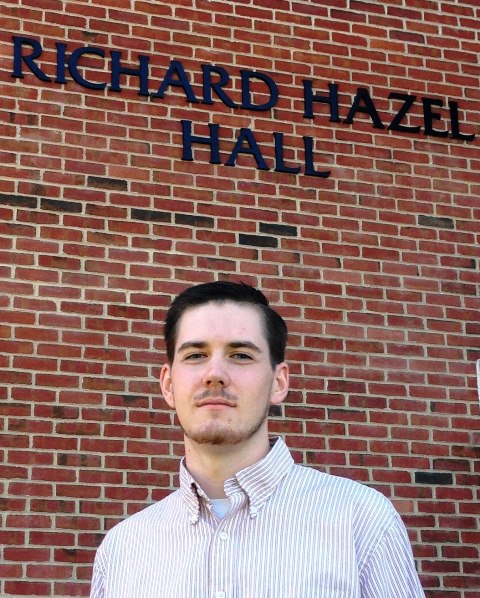Friday, August 26, 2016
UMES senior benefits from prestigious EPA fellowship for undergraduates

PRINCESS ANNE, MD – (Aug. 26, 2016) – UMES’ Ben Barnes spent this past summer as a U.S. Environmental Protection Agency research assistant tasked with helping search for ways to rid drinking water of lead and copper contaminants.
The senior from Onancock, Va. worked at the EPA’s Water Supply and Water Resources Division in Cincinnati, part of a fellowship award that paid him for a 12-week summer internship as well as two years of undergraduate study.
A chemistry major with a 3.94 grade point average, Barnes was one of 34 recipients selected a year ago to receive a Greater Research Opportunities fellowship each worth up to $50,000.
“EPA’s GRO Fellowships … provide undergraduates like Benjamin with support to cultivate their research skills and explore their passion for environmental science,” said Shawn M. Garvin, EPA’s Mid-Atlantic Regional Administrator. “EPA knows today’s students are tomorrow’s environmental scientists and engineers who will lead the way in protecting human health and the environment.”
It wasn’t long after Barnes arrived at UMES in the fall of 2014 that he connected with chemistry professor Victoria Volkis. Barnes was looking for experience working in a laboratory, and Volkis is among the university’s most active faculty researchers.
“He initially came (to me) as a volunteer and struck me as a young man (who) not only very clearly knew what he wants to study and what career to (pursue),” Volkis said, “but he also had a solid plan how to achieve it.”
Barnes, a member of UMES’ Richard A. Henson Honors Program, had done research on the prestigious and generous EPA fellowship program, and targeted qualifying for it as a path to graduate school. Volkis played a crucial role in mentoring him with his application so it would get the screening committee’s attention.
A product of a home-school education who also earned college credit from Eastern Shore Community College, Barnes worked six summers as an adolescent on the Chesapeake Bay as a waterman harvesting crabs.
“It was interesting work,” he said. “Now, I’ve had a chance to experience a couple of different perspectives on the environment.”
Barnes’ long-term goals are earning a doctorate in materials science and then teaching and doing research at the college level.
At UMES, Barnes is also working with physicist Kausik S. Das on developing organic solar cell technology and hopes to conduct similar research in graduate school.”
“It’s so fundamental to different parts of science – physics, chemistry, electrical engineering,” he said.
During his stint as an EPA intern in Cincinnati, Barnes crossed paths with Darren Lytle, a front-line scientist singled out for praise by agency critics as one of the “good guys” in the controversy that swirled around the slow response to Flint, Mich.’s lead contaminated water system.
“I got to apply some of the things I’ve learned here (at UMES),” Barnes said of his EPA experience. “It was a great opportunity to see the research alternative to what is done in an academic setting.”
In addition to working alongside Volkis, Barnes also credits the mentoring he’s received from Das and aviation science instructor Chris Hartman.
“The key to where I’ve gotten is developing good relationships with faculty,” Barnes said.
Volkis said Barnes has been a superb student-diplomat for UMES during the short time she has known him.
“Ben has made some significant presentations on national and regional conferences and has won couple of best poster awards.
Since its inception in 1981, EPA’s Greater Research Opportunities Fellowship program has awarded more than $13 million in funding to nearly 400 students.
#HawkPride
UMES Office of Public Relations,(410) 651-6669

